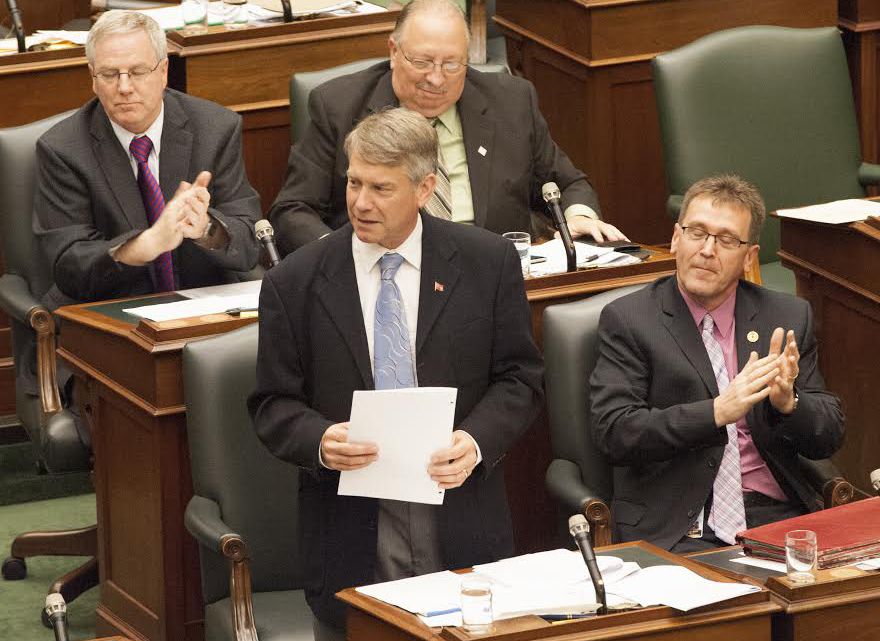Big changes are ahead for Parry Sound and Muskoka.
The provincial government released its 2018 Economic Outlook and Fiscal Review on Thursday.
Parry Sound-Muskoka MPP Norm Miller says that for a Conservative government that has been in power for nearly five months, progress is being made to relieve the $15 Billion dollar deficit that was inherited from the former Liberal government.
“Already we’ve found $3.2 billion in reduced program expenses. Of that, we’ve given $2.7 billion back to families and businesses. That’s money they can put into their pockets so that the deficit we’re facing this year has been reduced already by $500 million. We’re going to be facing a $14.5 billion deficit this year instead of $15 billion. It’s still a huge number but we’re heading in the right direction,” Miller said.
Miller says that one of the elements in the report that will benefit people locally is The Low Income Individual and Family Tax Credit. He said an individual that makes $30,000 or less will not pay any taxes. That means around 1.1 million people will pay no income tax.
“When you’re starting in the hole at $15 billion, there’s going to be some big challenges. What we’re trying to do is make the province open for business and put more money back in people’s pockets as we said we were going to do, and at the same time, maintain critical services. That’s a challenge but that’s the road we’re on. Considering the circumstances, it looks like a positive road we’re on,” Miller said.
Cuts in the announcement include cancelling a surtax on high-income earners, eliminating rent control on all new rental units, and axing the environmental commissioner, child and youth advocate, and French language services, commissioner.
“The Environmental Commissioner will be assumed by the Auditor General and the Child Advocate responsibilities will be assumed by the Ombudsman. It’s a way to reduce expenditures but maintain those critical functions of those officers,” Miller added.
The plan also includes an investment of $1.9 billion in mental health and addictions services. Miller says this, along with earlier investments in long-term care beds, will help cut hospital wait times and end hallway healthcare.



